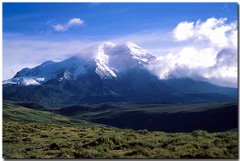Working every day, selling our labor on the market rather than using it to create new alternatives, we perpetuate the conditions that necessitate our submission to that market. Capitalism exists because we invest everything in it: all our energy and ingenuity in the production process, all our resources at the supermarket and in the stock market, all our attention in following the mass media. To be more precise, capitalism exists because our daily activities are it. Instead of each buying our own set of tools that inevitably sit rusting in the basement while we’re out working to cover the payments, we could all contribute a little towards a neighborhood toolset to be shared; likewise, instead of all trying to make
it on our own, we could save a lot of trouble by meeting our needs in cooperative groups, outside the exchange economy—but we don’t, because we fear no one else would join in, because we’re too exhausted from working to get started, because we’re too busy to even meet each other in the first place. Here we arrive at the catch-22 that maintains the status quo: revolution is not possible until
people change their lives, and vice versa. But somebody has to break this vicious circle and test out its implicit corollary: that revolution is possible when people change their lives.
. . . and Submission
It is a foregone conclusion for the average white collar worker that she would never sell sexual favors on the street—but spending her life in a cubicle, engaged in meaningless repetitive tasks, she willingly sells away more precious parts of herself. Obeying teachers, bosses, the demands of the market—not to mention traffic lights, parents’ expectations, religious scriptures, social norms—we are conditioned from infancy to put our needs on hold. Following orders becomes an unconscious reflex. As free-lance slaves hawking our lives hour by hour, we come to think of ourselves as each having a price; the amount of the price becomes our measure of value. In that sense, we become commodities, just like toothpaste and toilet paper. What once was a human being is now an employee, in the same way
that what once was a cow is now a medium rare steak. Our lives disappear, spent like the money for which we trade them. Commodities are consumed, working to produce commodities, and we become less than the sum of our products. Consumption—it’s not just a nineteenth century disease anymore! Having become merchandise ourselves, we rush to consume merchandise to prove we still have some power. Purchasing, once a necessary evil suffered to obtain the resources necessary for survival, is now a sacred act; in the religion of capitalism, in which value comes from financial power and spending is thus proof of worth, it is a kind of communion. The store is the temple in which the consumer’s status as one who can buy is affirmed in the actual act of buying. That’s why a certain class of people will gladly pay for bland food at an expensive restaurant when there is cheaper, tastier fare right down the street. For the consumer incarnate, spending money is the main point; everything else—taste in food and clothes, investment in the latest technologies, even political sympathies—is just a means to that end.
This compulsive disorder, which keeps us all running back to our jobs to earn more money as the credit card bills pile up, would be bad enough on its own—but it’s also gobbling the world up from beneath our feet. In the absence of beautiful mountain tops destroyed by mining and pickup games of street hockey outmoded by televised spectator sports, we can’t imagine what there might be besides consumerism to fill the aching void selling our lives away leaves within us.
You have discovered arachnoanarchy

otter clan omarian otter oasis

